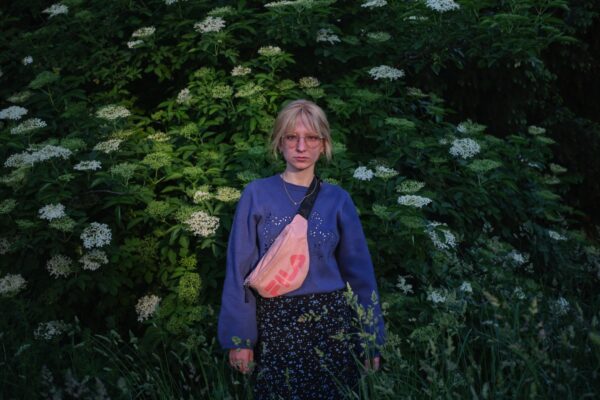Julia Krupa

Upon recognizing the necessity for a profound transformation in our relationship with entities beyond human beings, I became aware of the climate crisis as a crisis of communication. I found myself captivated by the inherent nature of plants and their remarkable existence in the world, characterised by resilience, harmonious coexistence with the environment, and their enormous potential for collectivity. It appears that our focus should not solely be on disempowering nature, but rather on disempowering ourselves. Embracing collective agency emerges as one potential avenue for change. How can plants, researchers, and artists collaborate in the creation of art? In times of crisis, how does art change and how does it change the world?
Throughout my residency, I will utilise traditional art forms while also exploring the expressive and performative potential of hiking, communal cooking, and co-existing with plants. My creative process will commence by immersing myself in the natural habitats of plants, including meadows, wastelands, allotments, and the urban nooks where plants thrive. I will also engage with people who maintain diverse relationships with plants, including members of the Chwaściarnia herb studio. Additionally, those attending workshops and talks at open meetings will be invited to pursue collective practices as part of my residency.
As a visual artist, I merge the realms of herbalism and art in my practice. I am currently studying at the Doctoral School of Humanities at the University of Warsaw, where I lead a research project entitled Herbal Road to Feminist Bio-egalitarianism. Phytotherapeutic traditions in Poland in the face of the climate crisis. In 2021, I graduated from the Faculty of Painting at the Academy of Fine Arts in Warsaw and was honoured to receive the grand prize in the art competition of the Entry Initiative. As part of the Autonomous Educational Space in Warsaw’s Jazdów district, I oversee an innovative studio called Chwaściarnia, dedicated to the exploration of methods for cross-species understanding with plants. I am also a co-author of the article Fitomisteria. Zielarska praktyka spekulatywna (Phytomisteria. Herbal Speculative Practice) published in the periodical Czas Kultury. In 2022, I co-managed Phytographies, a project examining human-plant relationships in the postindustrial Silesian landscape, carried out in collaboration with the Academy of Fine Arts in Katowice and the University of Silesia.
The first part of the workshop was looking at the different ways of presenting plants and visually narrating our relationship with them. We looked at Renaissance herbaria (such as Syrenius’ herbarium), cyanotypes of aquatic plants by Anna Atkins, and works by contemporary Polish artists such as Cecylia Malik and Diana Lelonek. This was followed by a writing workshop where we read texts with plant motifs using the interrupted reading method, individual walks in search of inspiration, and the joint creation of a mind map featuring sketches and associations. The second part of the workshop was dedicated to developing individual zine pages and scanning them. We wanted to consider and analyse the way we look at plants in the city with sensitivity and attention.




